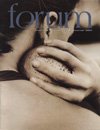
This issue includes articles on vocabulary, emotional intelligence and literature, reading and writing activities, and women in sports.
For international subscriptions of English Teaching Forum please contact the Public Affairs or Cultural Affairs section of the U.S. Embassy in your country.
U.S. Subscriptions: English Teaching Forum is exempted from the Congressional restriction on distribution of Department of State-produced materials in the United States. U.S. residents who want to order the printed edition can order from the U.S. Superintendent of Documents.
Incorporating Interactive Vocabulary Activities into Reading Classes is an article in volume 39, issue 1 of English Teaching Forum, a quarterly journal published by the U.S. Department of State for teachers of English as a foreign or second language.
Format: Text
This article discusses the use of literature in a language class as a way to develop emotional intelligence in children. The author suggests that literature can be motivating and can provide a low-anxiety context for children to learn English. Several response activities are suggested to develop language skills and nurture emotional intelligence. These activities include scripting, detecting feelings in text, a feeling hunt, creating a positive language dictionary, diary entries, and letters to characters.
Format: Text
Acquiring Vocabulary through a Context-based Approach is an article in volume 39, issue 1 of English Teaching Forum, a quarterly journal published by the U.S. Department of State for teachers of English as a foreign or second language.
Format: Text
Reading Activities for Effective Top-down Processing is an article in volume 39, issue 1 of English Teaching Forum, a quarterly journal published by the U.S. Department of State for teachers of English as a foreign or second language.
Format: Text
The author in this article presents laughter and fun as an important part of a language classroom. The author suggests that when you laugh you learn better. Humor is introduced as a way to increase motivation and decrease anxiety. The author defines the “funny teacher” as a serious professional who uses humor to provide students with an enjoyable journey through learning. Activities are suggested for increasing fun and learning in the language classroom.
Format: Text
This article discusses an integrated reading and writing course for first-year college EFL. The author of the article developed this course to address student difficulty in balancing multiple issues in writing. The course aimed to teach writing as a process. The author shares key components of the course such as reading and writing requirements and in-class activities.
Format: Text
This article presents a lesson that gives students the opportunity to explore aspects of rules and laws. The goal of the lesson is to help students learn vocabulary and concepts associated with the topic, practice their English language skills, and develop an understanding of the role of rules and laws in civil societies. The article shares three activities for a fifty-minute lesson plan, but the authors state that teachers may modify the lesson for their own contexts and student needs.
Format: Text
This piece introduces American sayings and idioms related to the world of sports.
Format: Text